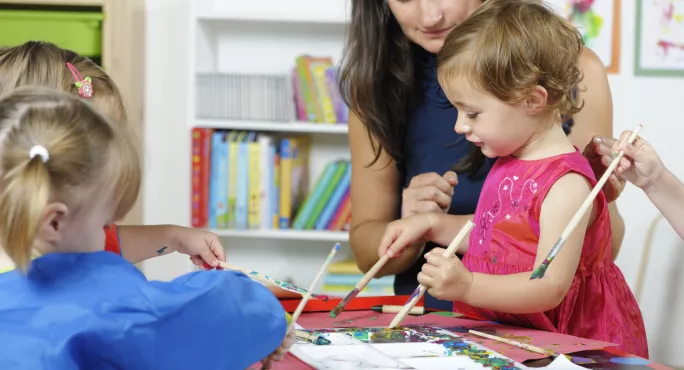Dame Alison Peacock, head of Wroxham School in Hertfordshire, has thought deeply about how the way we assess primary children can help them achieve their very best - or, indeed, prevent them from doing so.
So the fact she has decided not to do the baseline assessment at the start of Reception year - after trialling different methods on offer and deciding that they did not add to the information her staff already collected - is very much a worthy discussion.
But at its heart, this is a simple story of a headteacher deciding not to do something that she doesn’t have to do.
There are, of course, right now, heads up and down the country not filling in bits of admin they don’t see as essential, not carrying out an observation on a teacher that they know is outstanding, not phoning up a parent to have a chat about a pupil who is behaving well and working hard.
One of the interesting things about Dame Alison’s move is that lots of people agree that the baseline assessment actually seems like a rather good idea. As we know, pretty much all primary schools already do some kind of assessment of children on entry - a fact acknowledged by the government when it introduced its proposal for a more standardised system.
And the tests approved by ministers for use in schools are all designed to be useful for teachers and as unobtrusive as possible for children.
Indeed, many headteachers think that the introduction of a baseline assessment will be a helpful addition to the information they collect on children’s potential.
Why not have a baseline test that isn’t about assessing individual children on entry, but is about setting a mark from which progress can be measured?
In principle, this is a great ideal; an attainment-only measure, which takes no account of children’s different starting points, as a fair way to judge a school’s work over the life-cycle of a cohort.
So why, given the benefits, is it voluntary? Why let heads in their thousands, including Dame Alison, have the option not to do it?
A voluntary baseline seems in line with the government’s moves towards professional autonomy, but at odds with its insistence that progress between reception and Year 6 is the fairest way to assess many schools. And in pegging the baseline assessment to sky-high attainment targets, the government has diluted any potential innovation that a truly voluntary baseline assessment might throw out.
The government may have been moved by the strong opposition from the NUT and ATL unions and early-years groups. But proposals for the phonics check also provoked a similar scale of opposition, perhaps even more so, and it was still made statutory.
It’s a decision that’s made all the more baffling by the fact that carrying out a baseline assessment on early-years pupils isn’t really all that voluntary.
Primary headteachers know that in seven years’ time - even if their pupils do brilliantly, even if they break all previous records and leave their school happy, confident and armed with the knowledge they need to excel in secondary school, this will count for nothing if they can’t show the pupils progressed via an approved measure.
Despite this, some heads, perhaps thousands, won’t take part. And those headteachers will be the ones who are confident that they can hit the 85 per cent attainment target, keeping their school out of the coasting category in the process.
And there will be other pragmatists who are confident that the government will change its mind again in the next seven years.
Then there will be others who are confident that, when it comes down to it, ministers will baulk at telling parents that it is closing an outstanding and popular school that has demonstrated Ofsted-approved progress for seven years, all because it didn’t want to test their children when they were four.
But it shouldn’t be like this.
For voluntary baseline assessments to truly work, the government needs to create a climate of trust - a climate where headteachers can do what they think is best for their school and its cohorts without feeling the need to second-guess government policy. The fact that Dame Alison’s decision is headline-grabbing news is evidence that the sector is a long way from that at present.
So yes, perhaps a voluntary baseline assessment for primaries could work. But not like this.




